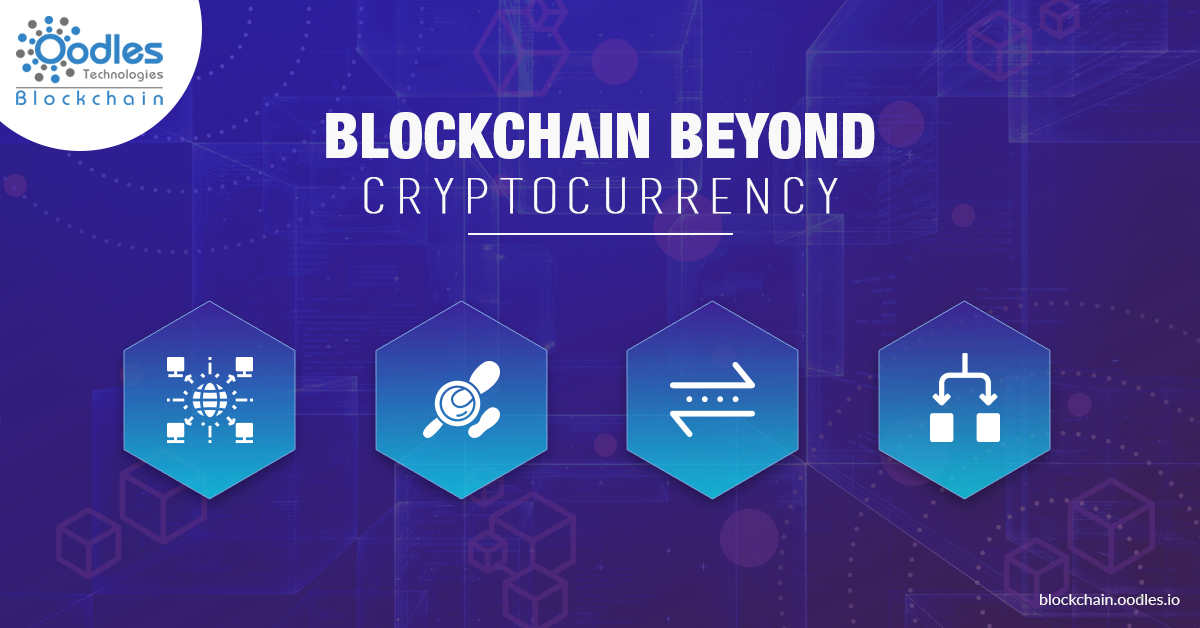-
We all have heard numerous definitions of what blockchain technology is, and that maybe had to do with money or cryptocurrency. However, blockchain technology has widened its spectrum of applications beyond cryptocurrency. In the future, we can expect to see blockchain technology becoming part of many everyday B2B transactions, including those managed by enterprise applications.
Although countless use cases of blockchain have been discussed and it can be hard to comprehend them all, let's look at these four use cases of blockchain beyond cryptocurrency, that can bring true value to businesses. These blockchain use cases could be applied to enterprise applications to bring more flexibility, security, and streamlined business processes- or may even enable new transforming business models.
Blockchain Beyond Cryptocurrency
1. Form distributed, autonomous marketplaces
Blockchain enables asset owners to track and exchange things of value- such as outstanding invoices- in a transparent, protected, and self-accommodation ‘chain' of transactions. For instance, by utilizing confirmed invoices from ERP applications, organizations could quickly raise required money as well as smoothen cash flow by selling invoices on an autonomous invoice-factoring marketplace. Autonomous marketplaces for other assets are likely going to expand. Fundamentally, a blockchain-based smart contract does away with the need for middlemen or third-party oversight as the software itself is a controlled an open framework that can be seen by all transaction participants. Thus, enabling entities to analyze their assets multi-dimensionally in terms of value; instead of just face value.
2. Reduce friction
Enterprises could develop a self-controlled blockchain network to be used by suppliers and partners. It will allow automated instant payments, smart contracts, and Internet of Things (IoT)- activated shipments. By eliminating the need for human interaction, errors and missing information would be reduced across transactions. It would allow transactions to happen faster as buyers and sellers will be directly connected.
3. Secured decentralized private records with encryption
One of the basic aspects of blockchain technology is that each individual data record or element can be made encrypted. Currently, organizations depend on third parties to safeguard their databases of shared information using restricted access and firewalls. As high-profile data breaches and hacks show, this seems to be not working anymore. However, each data record can be secured and encrypted with a blockchain member's key. In this sense, a cybercriminal would need access to each key of each member to temper the data. Although this doesn't suggest that blockchain can make all data 100% secure, it certainly can prevent the exposure of private records in a single act.
4. Tracking the provenance of products
Blockchain can ensure the guarantee of product quality and safety. The technology can make it easier to monitor and locate in-use products, parts, and materials. For instance, an auto manufacturer can develop an automotive blockchain solution that includes sub-assembly makers, parts suppliers, a quality-control provider, and the public regulatory body. So, if the need to recall defective parts occurs, it would be much easier, faster, and more effective with blockchain-based supply chain solutions.
Why Blockchain is the Future:
These were only four of many areas where blockchain beyond cryptocurrency helps to bring transparency, security, and efficiency. The technology is evolving rapidly and we must learn more about it and then consider pilot projects of value in our business. In some scenarios, blockchain-based industry solutions such as smart contracts, decentralized Ethereum and Hyperledger applications, ICOs, etc., may require developing new business processes using cloud applications. But it's a flexible technology that's here for the long haul. It could benefit any industry.

Our Offices
INDIA
Emaar Digital Greens, Sector 61,
Gurugram, Haryana
122011.
Welldone Tech Park,
Sector 48, Sohna road,
Gurugram, Haryana
122018.














